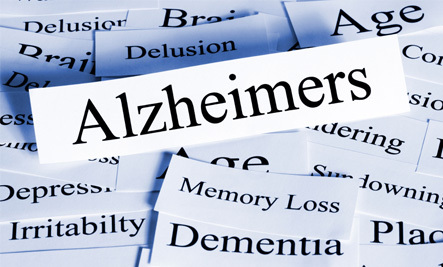Alzheimer’s disease progresses slowly to the point that not many are even aware that they have it. Typically, it has three general stages, and different people get affected by it in different ways. The progression rate may also vary.
Those who have been diagnosed by Alzheimer’s may live after four to eight years on average, but there are also those who can live as long as 20 years. All this, of course, is dependent on several factors.

Let’s take a look at the different stages of Alzheimer’s and their respective symptoms.
The Three Stages of Alzheimer’s
It’s important to note that the brain changes involved in the development of Alzheimer’s occur before the symptoms of the disease ever exhibit itself. The following are general guide into the three stages of clinical Alzheimer’s.
1. Early Stage: Mild Alzheimer’s. A person may still be independent at this stage. They may still drive, work, perform personal and household tasks, as well as socialize. However, mild memory lapses may occur at this stage. They may easily forget things, places, and dates that are al
ready familiar. Other symptoms include:
- Problems coming up with the right word or name
- Inability to accurately remember names when introduced to new people
- Difficulty performing certain tasks at work, at home or in social settings
- Forgetting the material they have just read or watched
- Frequently losing or misplacing objects
- Inability to organize, plan, or make decisions due to confusion and memory loss
2. Middle Stage: Moderate Alzheimer’s. This is typically the longest stage and can last for several years. As the disease progresses at this stage, the required level of care may also increase.
- Forgetfulness involving historical or even personal events
- Sudden mood and personality changes
- Withdrawal and isolation when it comes to social settings
- Inability to recall their own personal information
- Needing help when it comes to personal hygiene and care
- Changes in sleep patterns
- Inability to control bladder and bowel movements
- Confusion about location and time
- Increased incidences and risks of getting lost or wandering
- Compulsive and repetitive behavior
3. Late Stage: Severe Alzheimer’s. This is the final stage of the disease, wherein they are completely unable to respond to their environment, make sound judgments, carry on conversations, or control movements. Their personality may also be severely altered.
- Requiring full and complete assistance with daily activities, including hygiene
- Losing awareness of recent events
- Inability to recognize their surroundings, resulting to panic and anxiety
- Increasing difficulty in communicating
- Inability to walk, sit, and eat
- Becoming more vulnerable to infections
Get Help for Alzheimer’s Care
For those needing help caring for a loved one with Alzheimer’s, Blessed Home provides flexible care that can be tailored to you and your loved ones’ unique needs.

Recent Comments